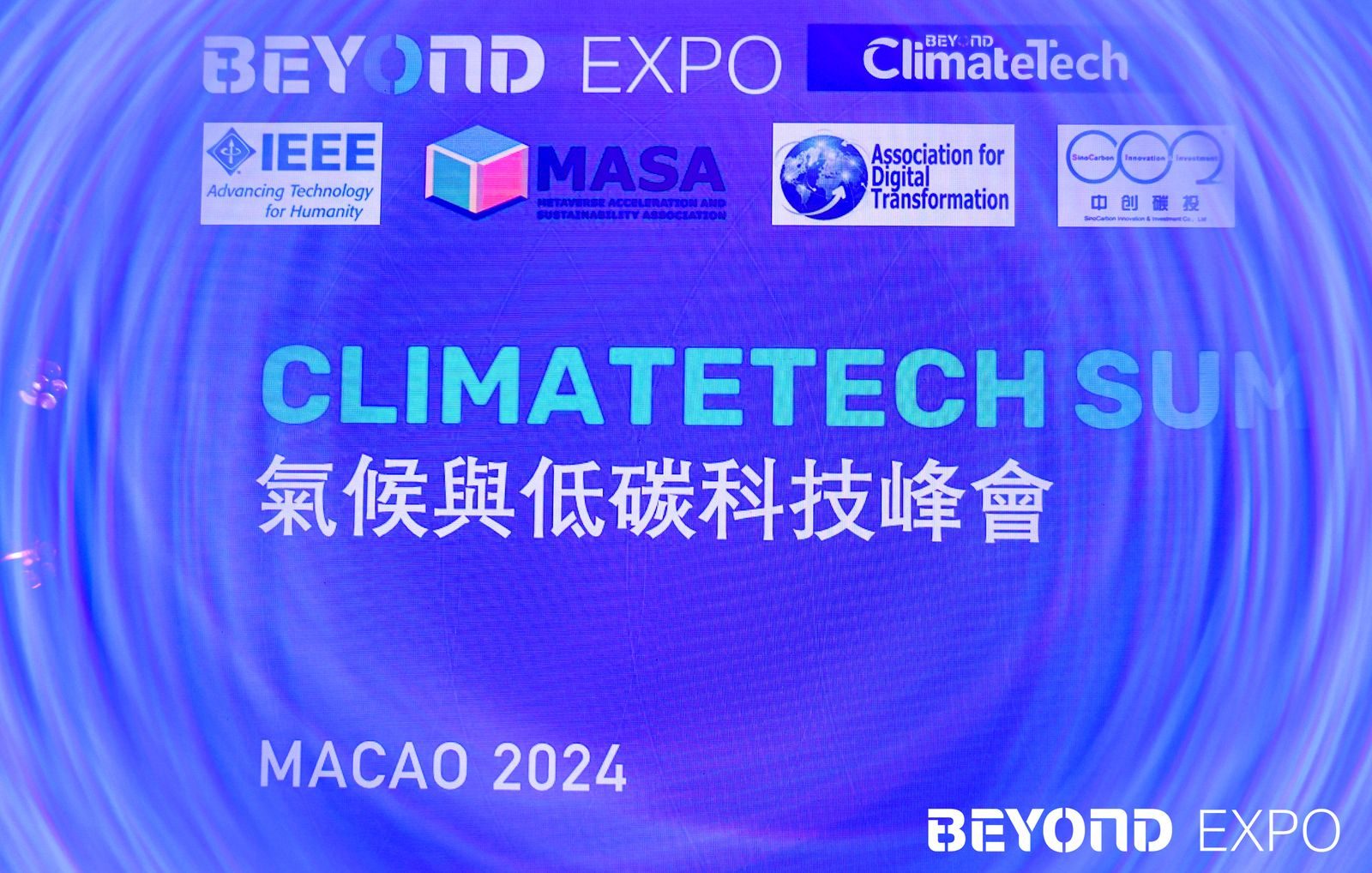Some of the hottest emerging technologies, including artificial intelligence and the metaverse, are expected to facilitate the significant reduction of greenhouse gas emissions from businesses. However, it would require large amounts of data and professionals to achieve this goal, experts said on May 25 at the BEYOND EXPO 2024.
A large language model, or LLM, consisting of neural network algorithms for analyzing vast amounts of datasets, summarizes information and creates sophisticated output at a speed much faster than human counterparts. This could automate workflows for carbon capture and carbon trading, said Chen Nan, deputy director of the Research Institute at SinoCarbon Innovation and Investment Co., Ltd.
However, experts warned that information generated by those language models could sometimes be inaccurate and unreliable, making the involvement of professionals in training models essential.
“When we use AI to improve the operation of a wind power plant or select an ideal site for some renewable energy facilities, we normally expect something more precise,” Chen said.
AI-driven carbon reduction
According to Chen, AI-enabled carbon emission management is promising for commercialization in areas including carbon accounting and carbon trading.
Carbon accounting, the process of quantifying greenhouse gas emissions, can be complex due to variations across regions and industries. Different places and industries have varying standards, guidelines, and requirements, “creating a high bar for many industry people.”
AI could assist in identifying relevant guidelines and standards while highlighting their differences based on specific scenarios. However, Chen said it would only work if professionals were involved in providing specific model training guidelines to analyze and compare them.
Businesses also face challenges in fulfilling their reporting obligations to the European Union’s Carbon Border Adjustment Mechanism, a tool designed to address carbon leakage from non-EU countries. In such scenarios, Chen said LLMs could be of great help.
Although regulators provide detailed rules for calculating embedded emissions during the production process of CBAM goods, AI could help importers understand where and how to fill in the necessary information, Chen added.
Meanwhile, AI could also help facilitate international carbon trading. While financial mathematical models have traditionally been used to predict carbon market prices, AI could enhance the carbon trading approach with more comprehensive and specific strategies.
However, AI would require guidance from human experts, who would provide such systems with knowledge related to relevant policies, regulations, and specific trading rules, Chen said.
AI + the metaverse
Experts argue that new energy-saving measures for businesses could emerge by leveraging AI and the metaverse.
“Training Al in metaverses will become the new paradigm for Al research and development,” Yuan Yu, director at the Metaverse and Digitalization Promotion Center of Tsinghua Industrial Research Institute, told the audience.
Industry experts said that the metaverse could provide a training environment with lower costs and risks, as well as higher efficiency and diversity. This would, therefore, help boost the development of Al for addressing climate change.
One of the first sprouts of this new paradigm includes testing autonomous vehicles under various complex road conditions in a virtual world, which has already become a common industry practice.
The industrial metaverse can also be an effective tool in the fight against climate change, driven by digital twin technologies, a virtual representation of a physical object, system, or process.
“Long-term climate predictions are notoriously challenging due to the complexity of interactions among various factors,” said Ralf Ma, general manager of Beijing Miaorun Technology Co. Ltd. “A high-quality replica of our planet could enhance our ability to forecast climate patterns.”

